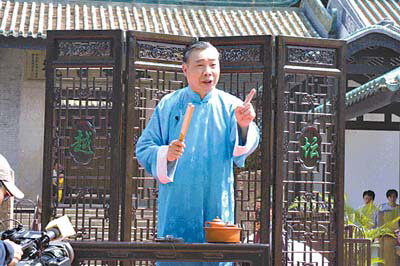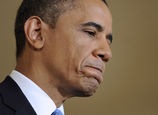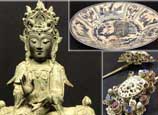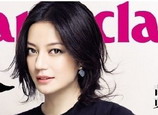
 |
| Shuoshu (Xinhua) |
Performers add their own commentaries on subjects and characters, so the audience gets a history lesson as well as entertainment.
It is noticeable that the majority of audience are in their 70s or 80s, and most of the remainder in their 60s. The seniors say they're occasionally joined by people in their 50s.
This loyal audience of seniors cite similar reasons for spending two hours a day in the theater. It's a way to "appreciate art," "make new friends" or just to "kill time," they say.
Another reason seniors give is that they grew up with Hangzhou dialect as their mother tongue, and it's more familiar to them than Mandarin.
But pinghua may seem less appealing to younger generations in our fast-pace modern society.
"Most of the pinghua stories are old, there are few young performers and hearing a story requires coming to performances for at least two months," said Wang Yingyan, an executive of Hangzhou Comedy Art Theater. "Why would young people be interested in that?"
Also, Hangzhou dialect has evolved since Mandarin was popularized over the country, meaning that young people often need to work hard to understand the traditional recitals.
And there are few new Hangzhou pinghua works, with performers usually sticking to the stories of dynasties.
Ma Laifa, 74, a former professional pinghua performer, created new pieces of pinghua in the 1980s. These usually last less than two hours in total and are stories about more recent modern times.
"If no professional writers create new stories, the art will fall behind the times," said Ma, now a researcher with Zhejiang Literary Federation and commissioner of Zhejiang Intangible Cultural Heritage Expert Committee.
"My pieces were popular for a while, but today people need new stories - stories about what's happening now," said Ma.
To meet this need, Ma has championed entertainer and actress Shen Ying, a 37-year-old from the Art Troupe of Zhejiang Armed Police Corps, to perform and create modern-style Hangzhou pinghua.
Shen and her husband Tang Aichao, vice director of the troupe, have created three new pieces, each no longer than 15 minutes, adapted from modern stories.
"To make the art live, new works and creativity are necessary," explained Shen, who speaks in the modern Hangzhou dialect understood by young locals.
But Shen does not yet see herself as a professional pinghua performer because she has not learned any traditional story from old performers. This will be demanding work, she acknowledged.
"Hangzhou pinghua is never taught through textbooks, only orally," explained Zhu Jianxin.
Zhu said usually a traditional pinghua performer is good at one to two stories, and grasps no more than five. This is not hard to understand, considering a traditional story is told over hundreds of hours, has tens of thousands of characters that are only embedded in a performer's brain.
Hangzhou Comedy Art Theater recorded many old performers' shows in order to transcribe the storytelling, though the project is not yet complete.
"To save the art the local government should offer financial support," said Zhu. "Then we could hire writers, cultivate young performers, record old performers' stories and arrange more performances."

















 Beijing style: Duck, opera, fog and cough...
Beijing style: Duck, opera, fog and cough...


![]()
